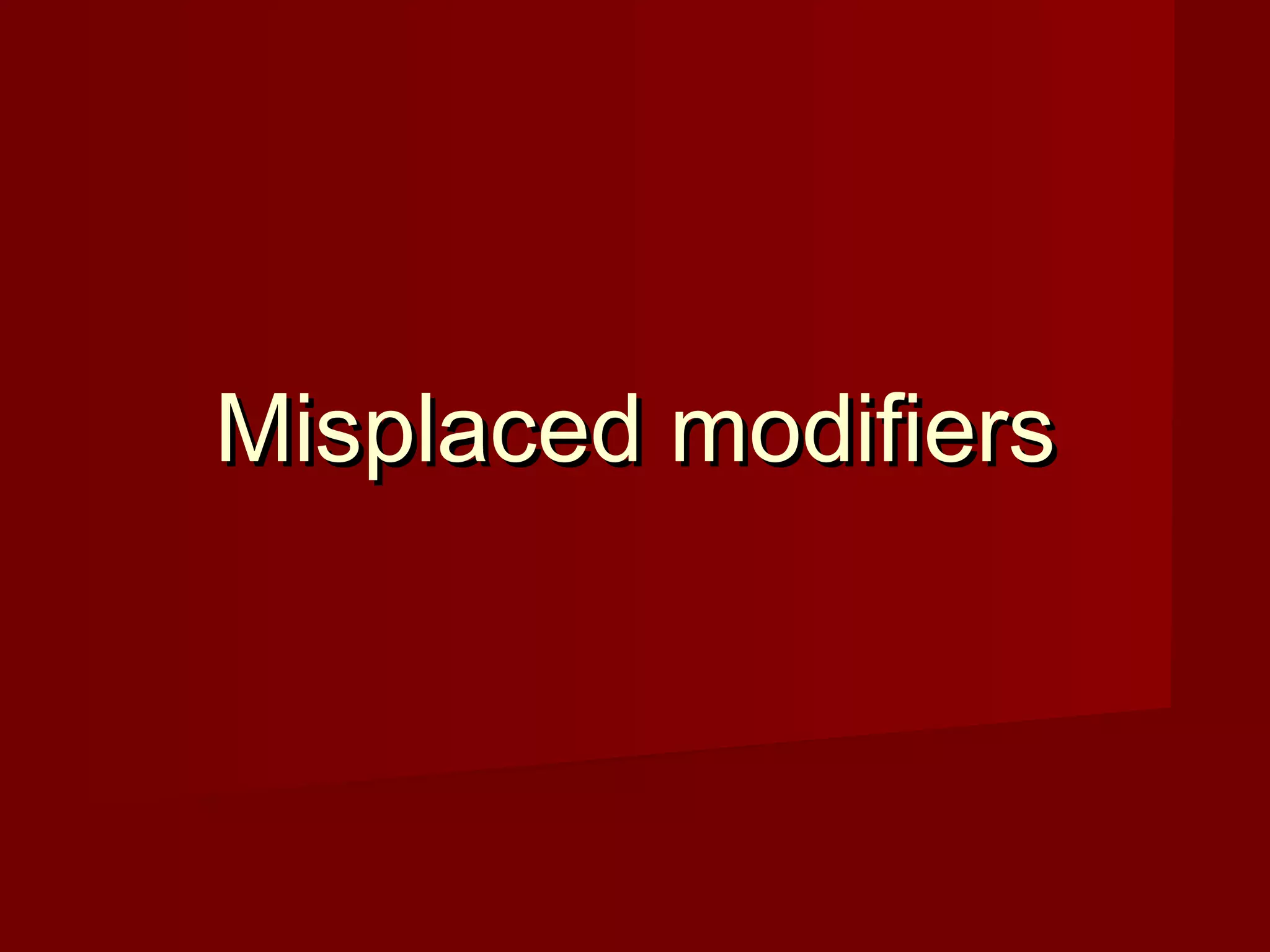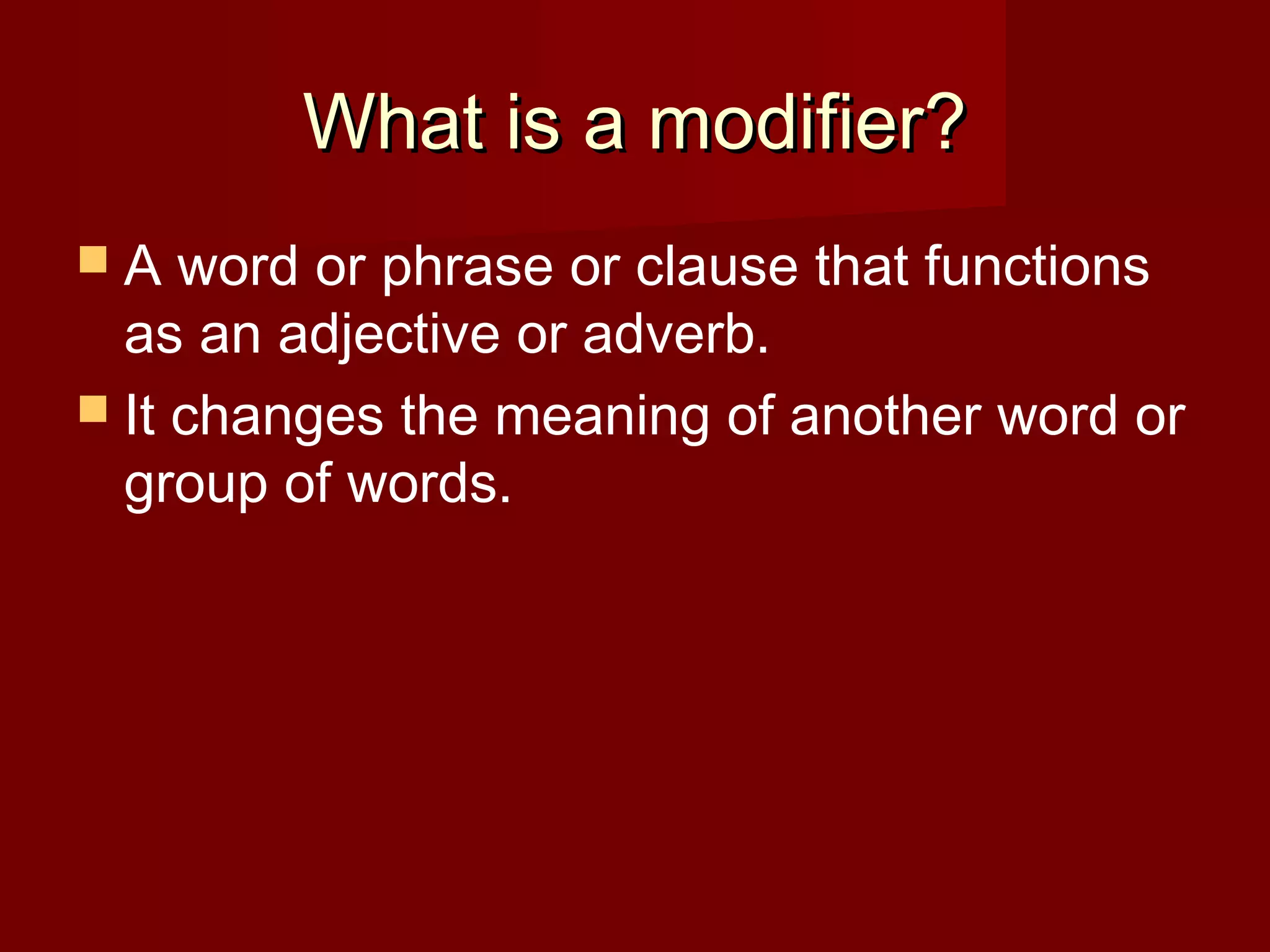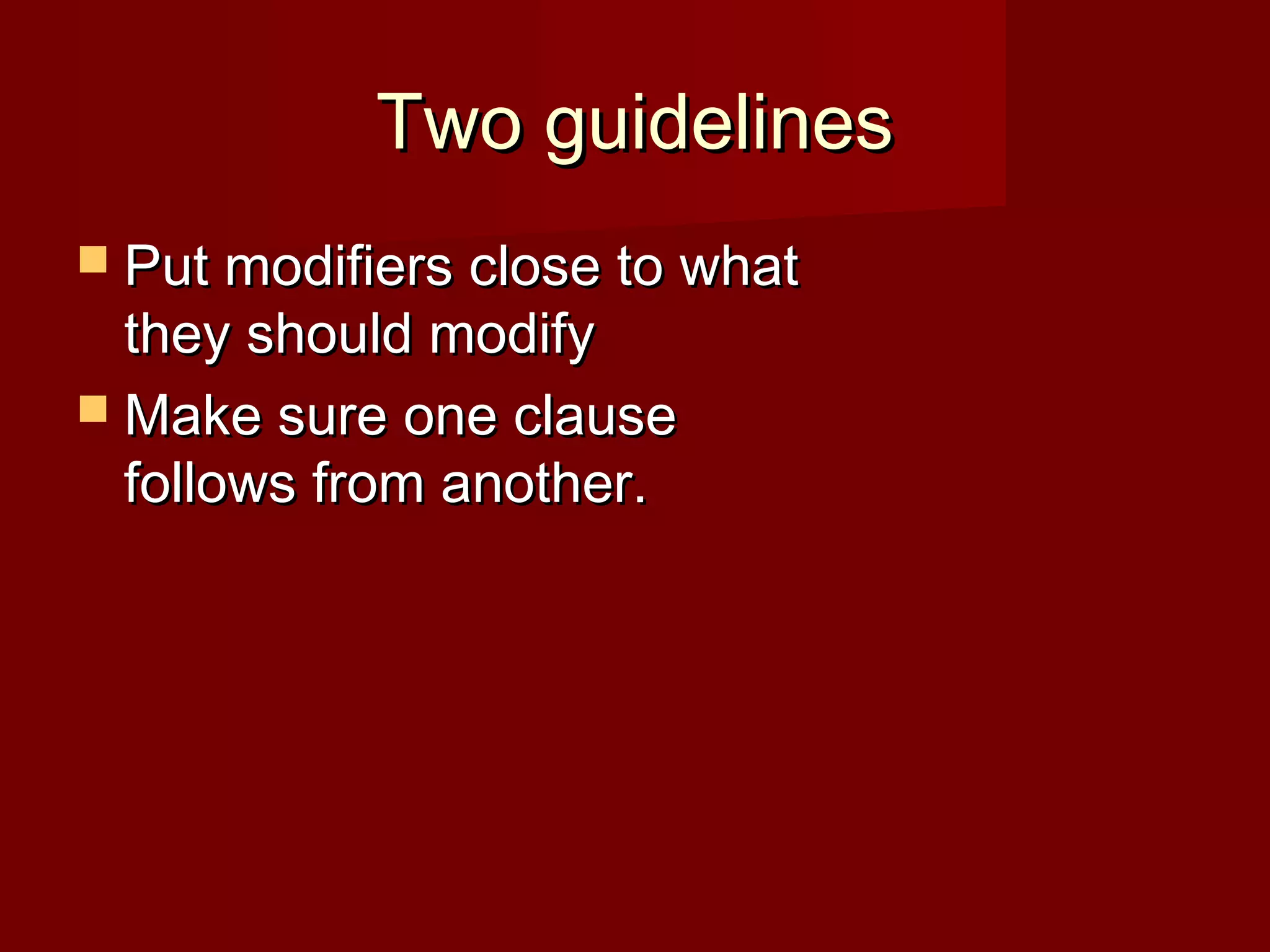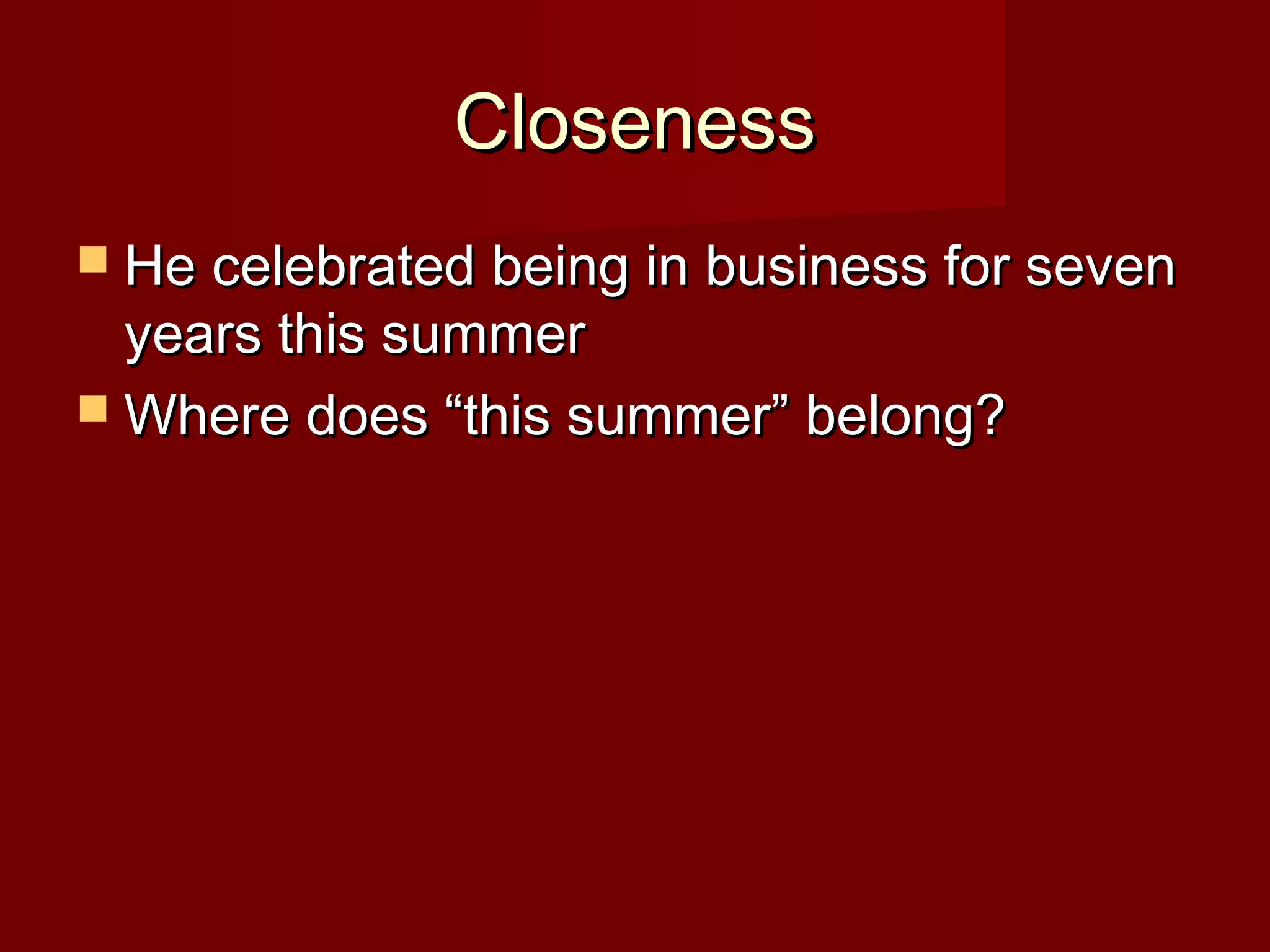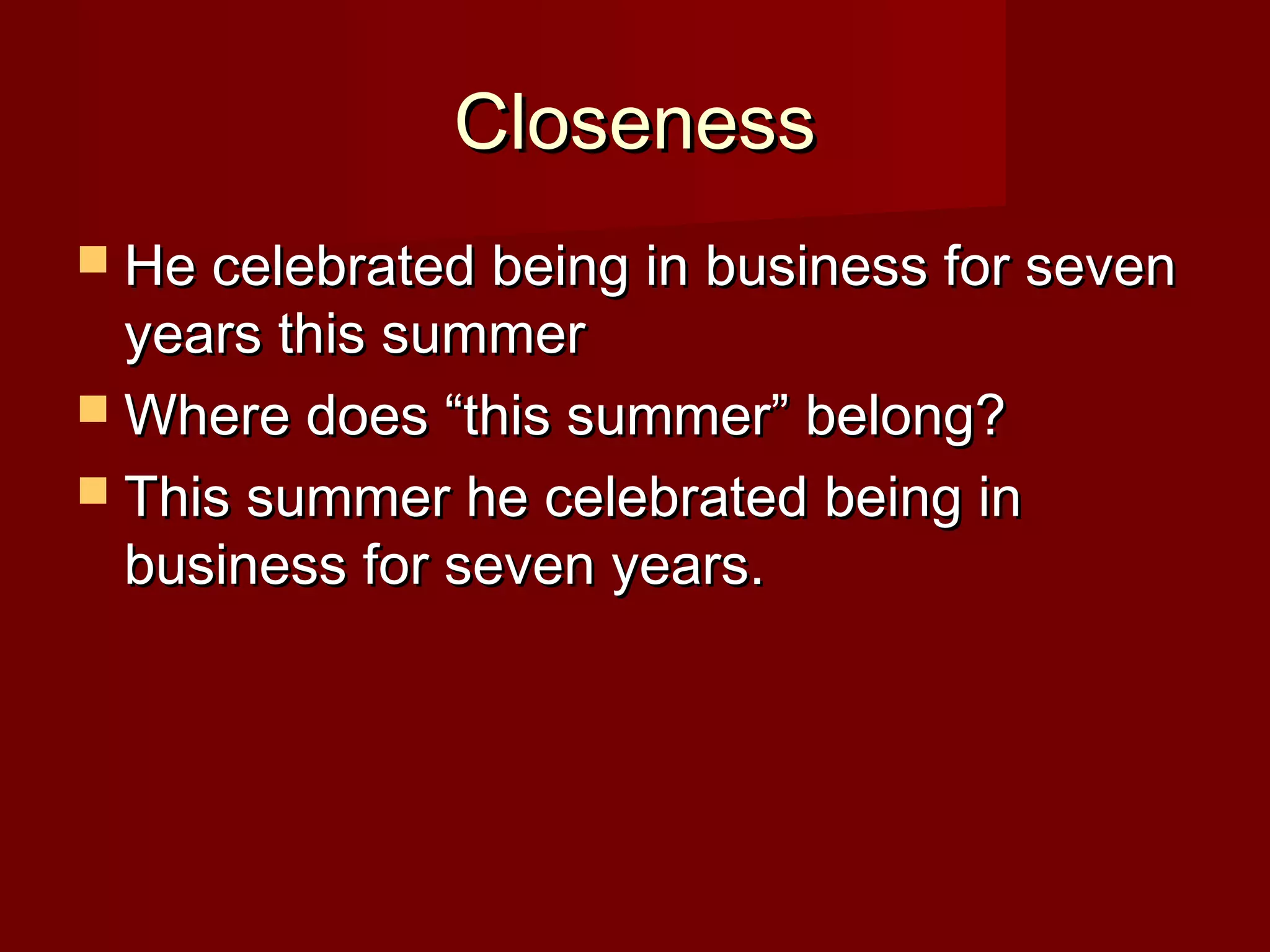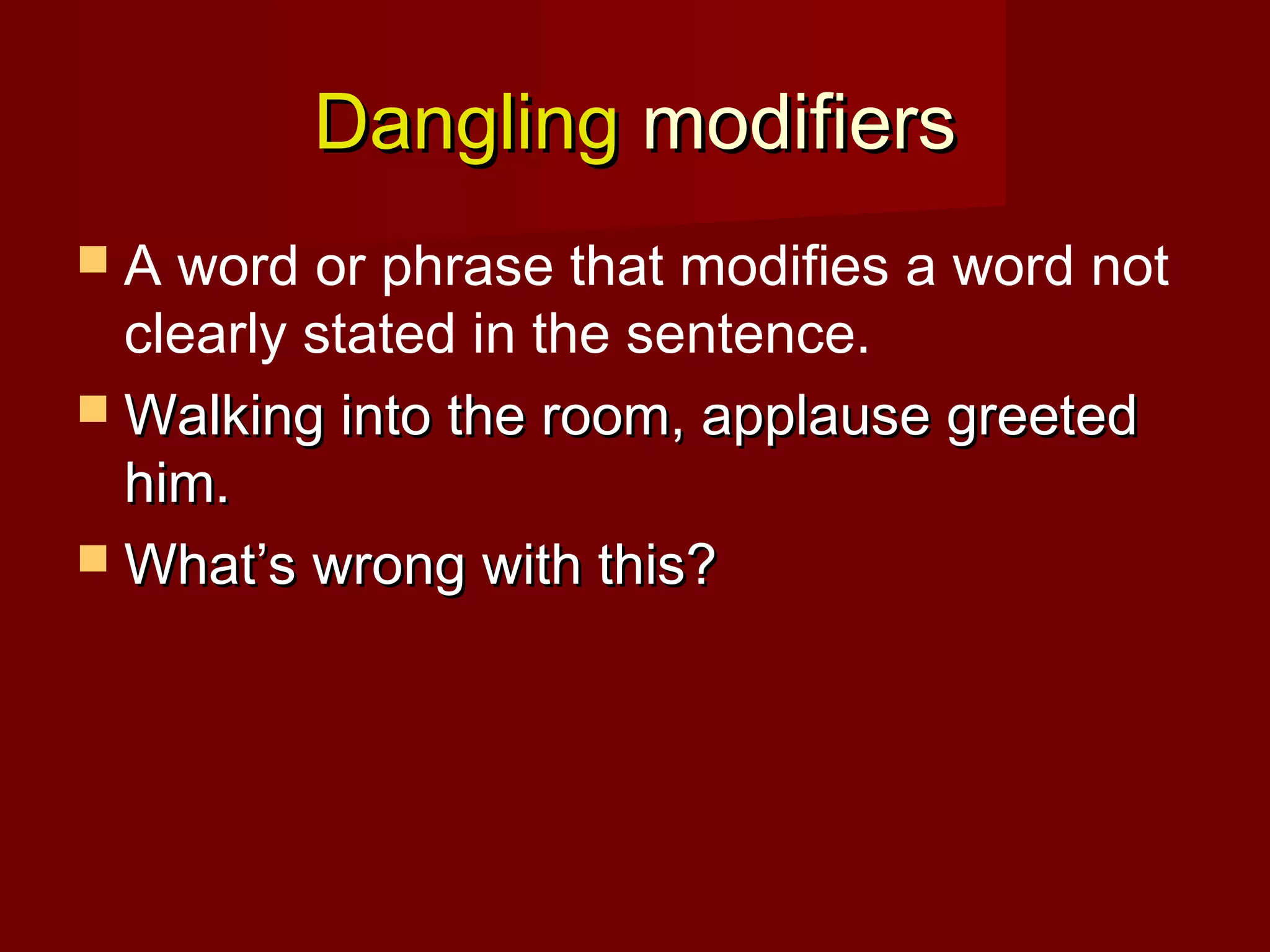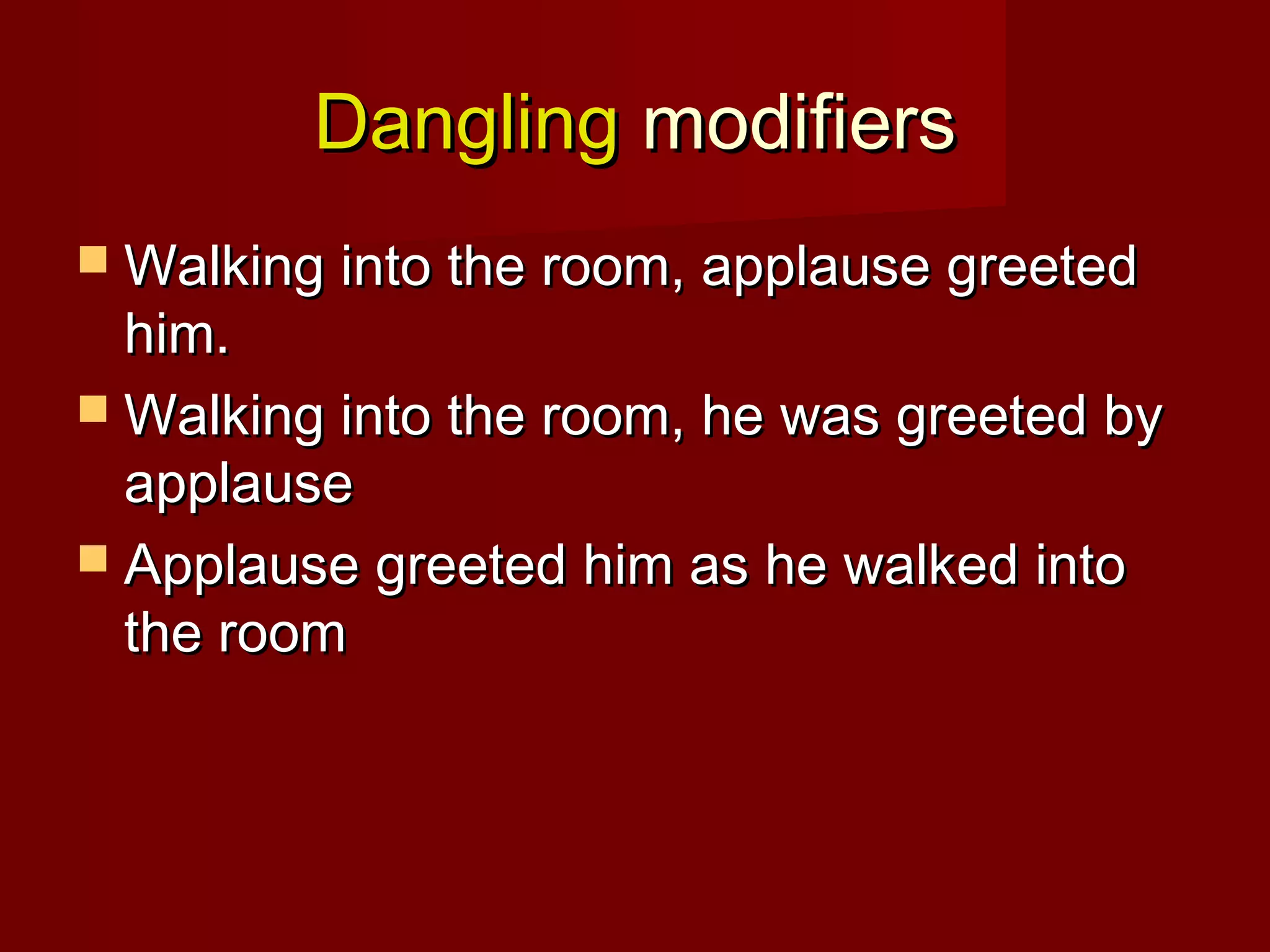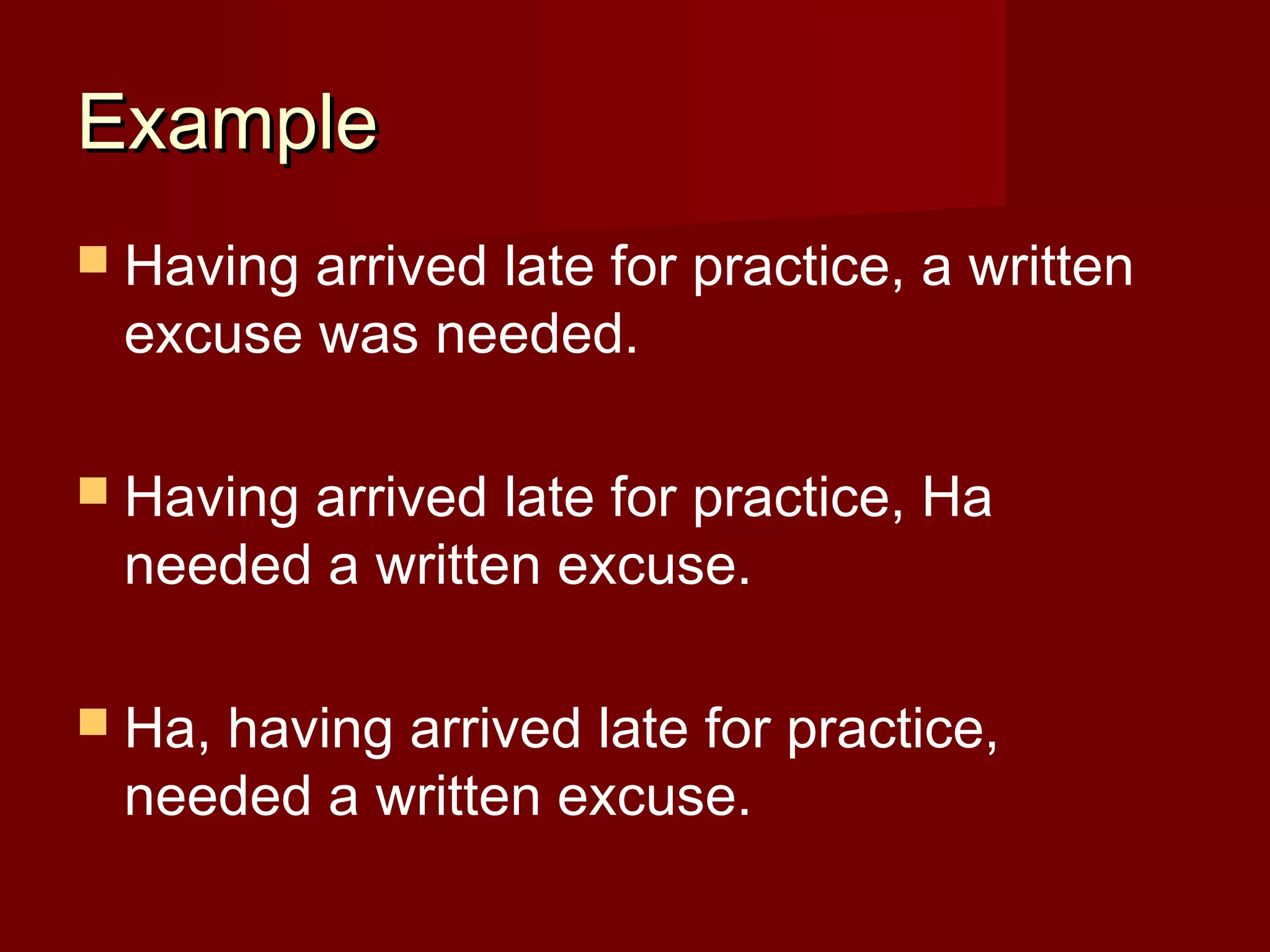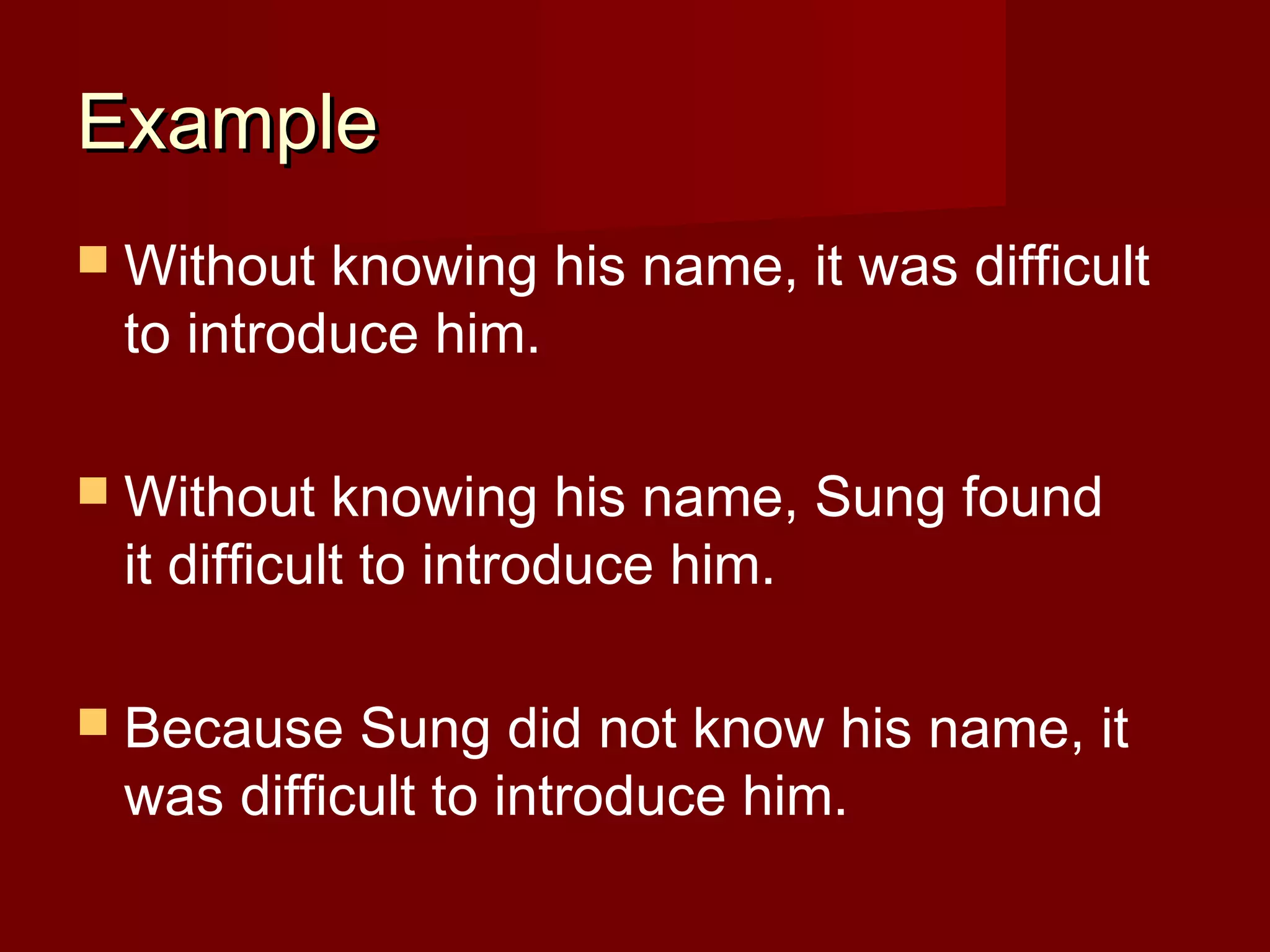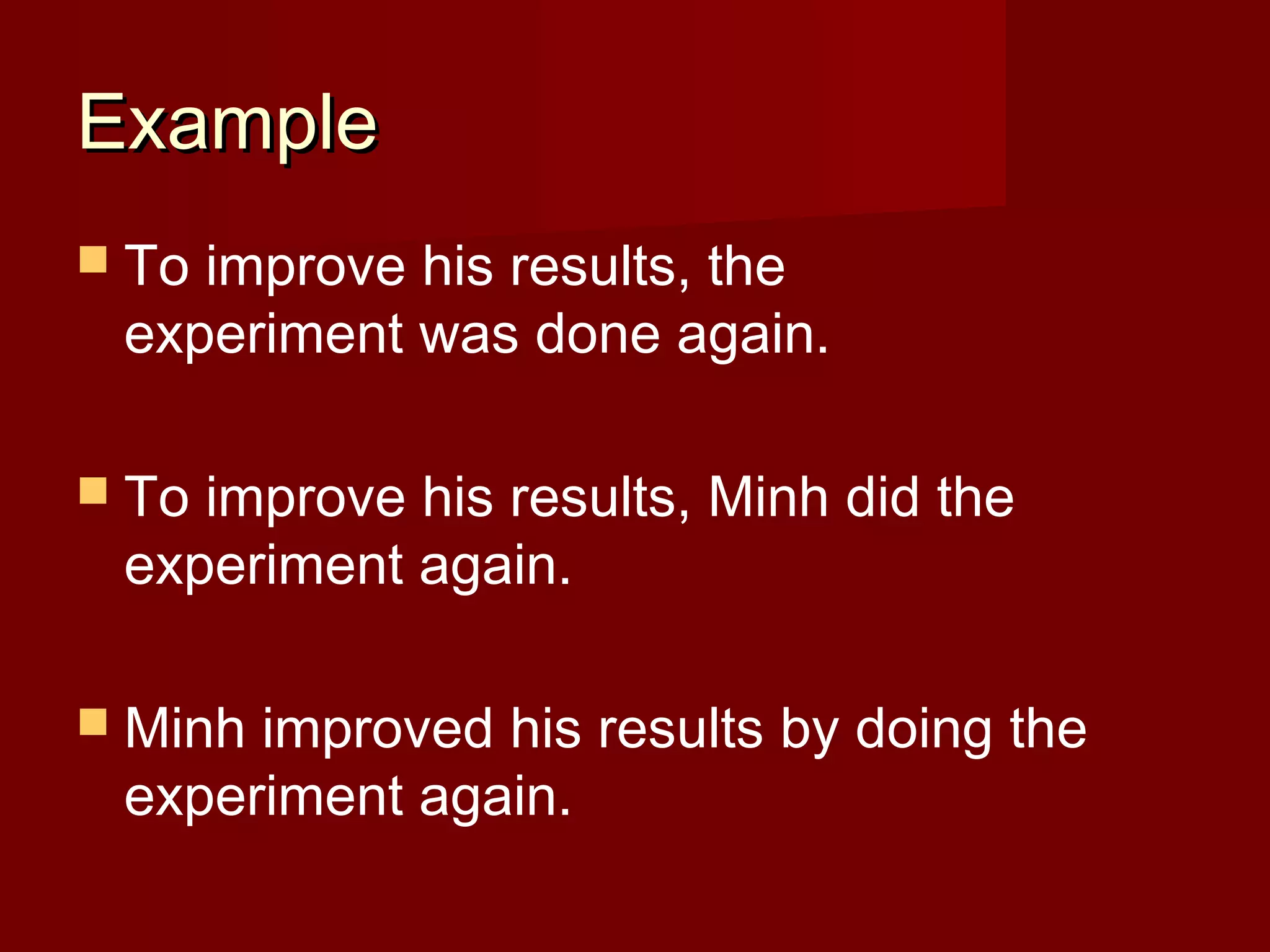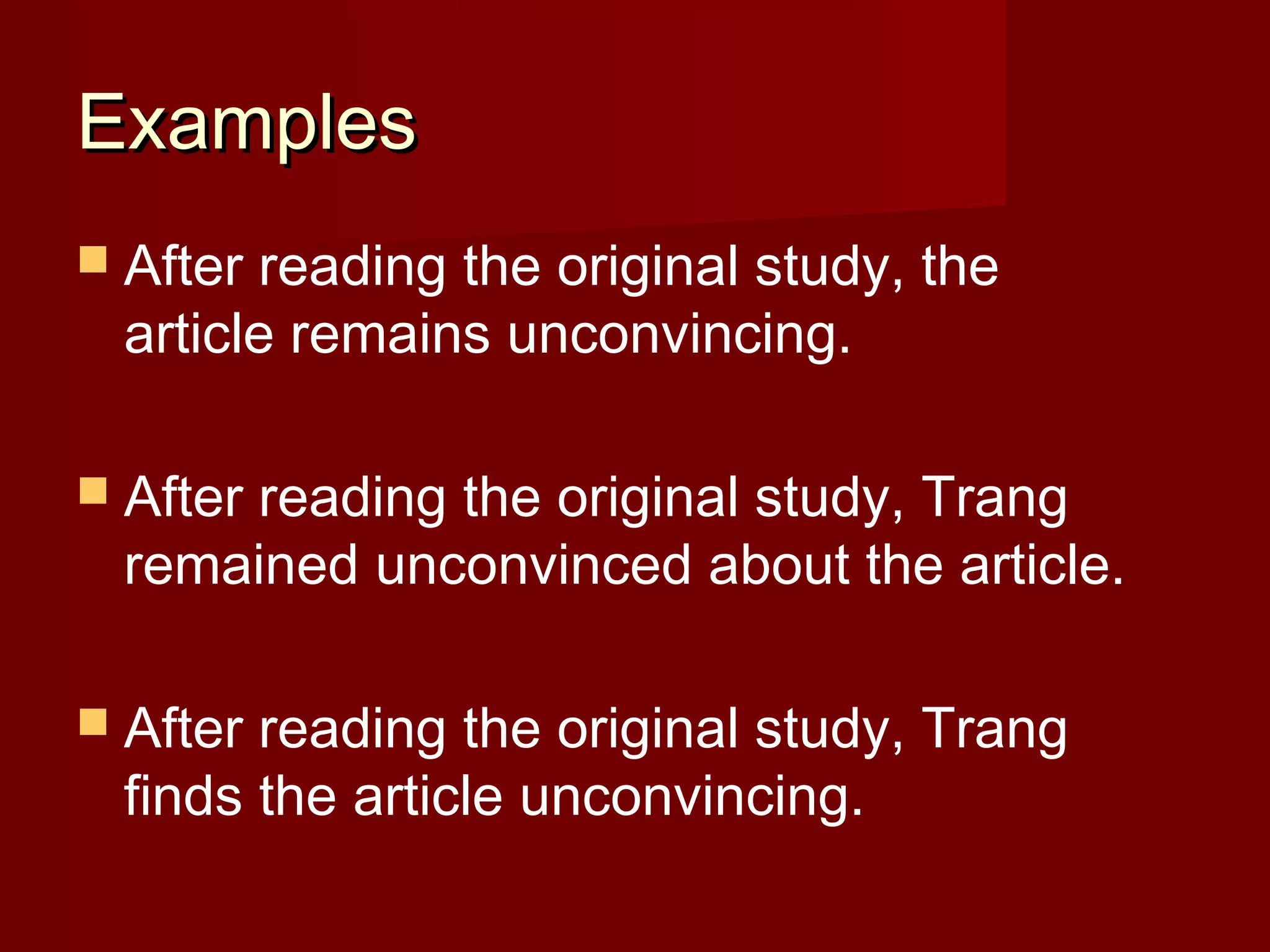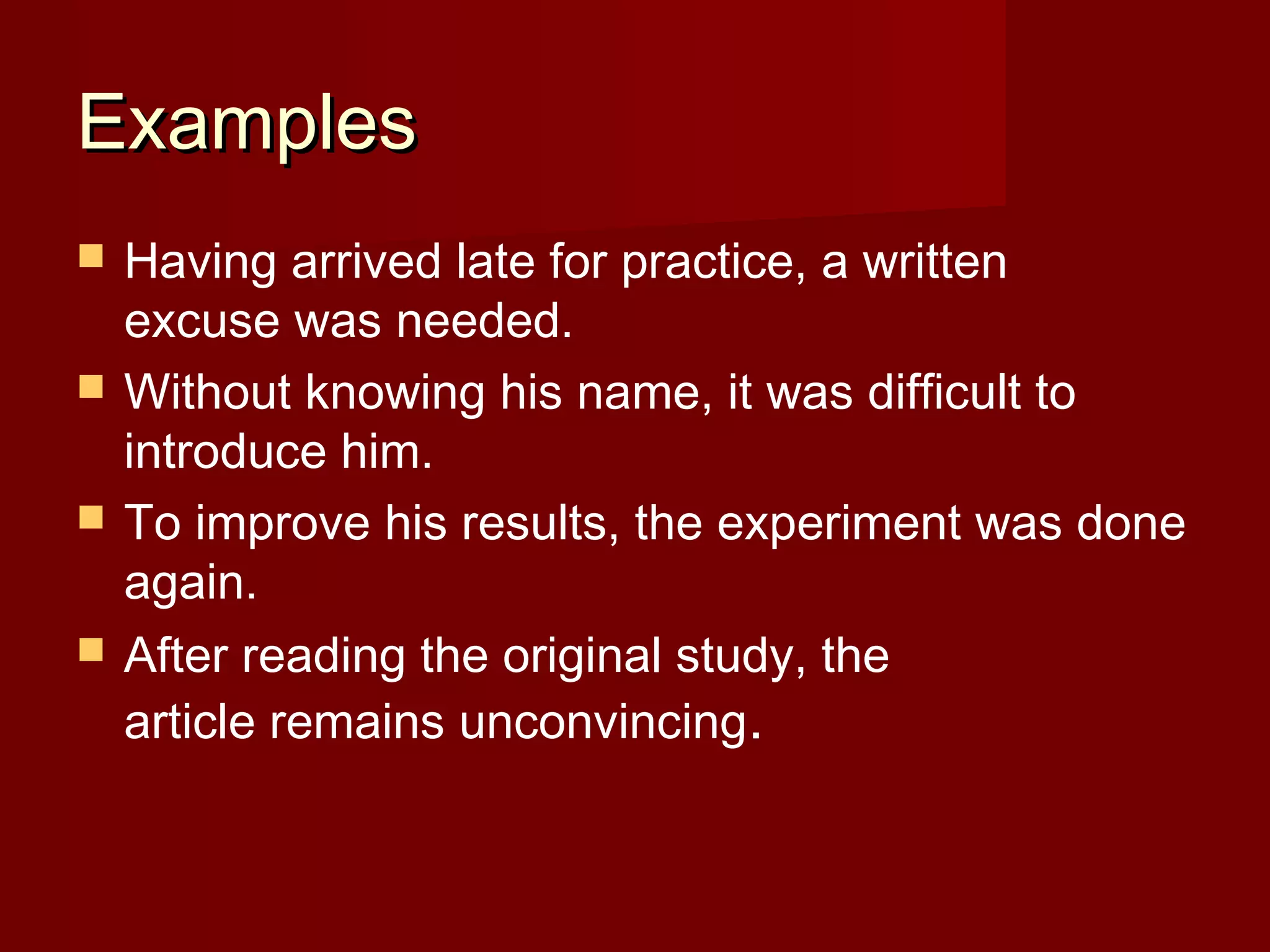This document discusses misplaced modifiers and provides guidelines and examples. It defines a modifier as a word or phrase that functions as an adjective or adverb and changes the meaning of other words. The two main guidelines are to place modifiers close to what they modify and ensure clauses logically follow each other. The document then gives examples of misplaced modifiers and restructures the sentences to correctly position the modifiers.
